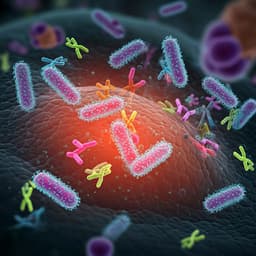
Health and Fitness
Impact of provision of abdominal aortic calcification results on fruit and vegetable intake: 12-week randomized phase 2 controlled trial
S. Radavelli-bagatini, C. P. Bondonno, et al.
Discover how revealing abdominal aortic calcification (AAC) results can influence cardiovascular health! This 12-week trial examined dietary impacts, showcasing intriguing findings by renowned researchers, including Simone Radavelli-Bagatini and Catherine P. Bondonno from Edith Cowan University, among others. While AAC results did not change fruit and vegetable intake, they did lead to significant improvements in cholesterol levels and cardiovascular risk scores.
Related Publications
Explore these studies to deepen your understanding of the subject.







